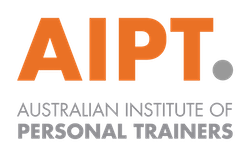Business administrator job description
Let’s get real. Job information online can often be overly optimistic — conveniently glossing over the raw bits. But when you’re making decisions about your future, you need all the facts.
That’s why we anonymously surveyed business administrators about their job, with hopes of getting an honest insight into what it’s really like.
While we did our best to ensure respondents were Australians and verified their job titles with proof of employment, we can’t guarantee complete accuracy — or that your experiences in the field will reflect theirs. So, we suggest that you take these insights as a guide only and try to talk to people in the field before making an important decision.
Tasks and responsibilities for a business administrator
A role in business administration can create a varied and diverse workday and depends on what kind of company you work for.
The business administrator job description includes:
- Filing documents and maintaining records
- Maintaining basic bookkeeping
- Ordering office supplies and stock
- Preparing documents and communication for the business
- Scheduling meetings, preparing meeting areas and taking minutes
- Providing office support to other colleagues
- Providing customer services
How to become a business administrator
-
Study
Business administration courses such as a Certificate III in Business (BSB30120), a Certificate IV in Business (BSB40120) or a Diploma of Business (BSB50120) equip you with the skills needed to perform a role in business administration well. A qualification in business administration will prepare you for an entry-level position and enhance your chances of a successful job application.
-
Further study
If in your career as a business administrator, you feel like you would like to specialise in specific areas or qualify for more senior roles in administration, further study, such as a bachelor’s degree, can provide you with the knowledge and skills you need.
Pathway options
The experience and knowledge needed to become an efficient business administrator are required across many other roles in the sector. An initial role in business administration can open up doors, allow your career to evolve into similar positions, and even lead to more senior roles in companies.
Where a career in business administration could take you:
Junior
-
Administrative officer
Most common qualification: Certificate IV in Business (Administration) (BSB40120)
-
Executive assistant
Most common qualification: Certificate III in Business (BSB30120)
Mid
-
Administration manager
Most common qualification: Certificate IV in Business (Administration) (BSB40120)
Senior
-
Business manager
Most common qualification: Diploma of Business (BSB50120)
Explore related qualifications
Studying through a TAFE or an RTO is a great way to gain essential skills in business administration. Gain your business administrator certification and qualification by browsing several courses available, and many you can easily fit into a busy full-time schedule or complete part-time.
Certificate III in Business - BSB30120
This course teaches many skills in business administration and is perfect for those who want an excellent overview of working to support business systems.
The skills learned in this qualification can lead to jobs in administration, executive assisting, clerical support and much more.
The average duration for the course is one year, but if you study full-time you can complete it faster. You can learn online with flexible enrolment, and you may even be eligible for course payment subsidies.
3 providers offer this course



Certificate IV in Business - BSB40120
This course is a more comprehensive study of business skills and covers critical thinking, communication strategies and human resources.
People who complete this course may have more refined skills in business administration and take on a supervisory role to other administrative assistants.
The average duration for this course is one year, but you can complete it faster if taken full-time. There are flexible study options, and you can complete this qualification online. Payment concessions may be available for eligible students.
5 providers offer this course





Diploma of Business - BSB50120
A business diploma delves into the knowledge and skills needed in various service job roles in the business world. It is excellent for those who want to advance their business administration career into senior positions. Topics covered range from administration to business operations and team leadership skills.
The average duration for this course is one year and can be studied part or full-time. Some providers offer online courses, and payment plans may be available for course fees.
3 providers offer this course



Related subjects
There are plenty of jobs for people with strong organisation, time management and people skills. Your natural soft skills and interests in office administration are incredibly flexible and can lead you on a career path into many other roles.
Related articles
Does life as a business administrator sound perfect for you? If so, there is no shortage of helpful resources, articles and hints and tips so you can explore this career further.



![6 Steps to Build a Business with Positive Social Impact [+ Examples]](https://www.training.com.au/wp-content/uploads/TR_SocialImpactBusiness_Feature.jpg)






















